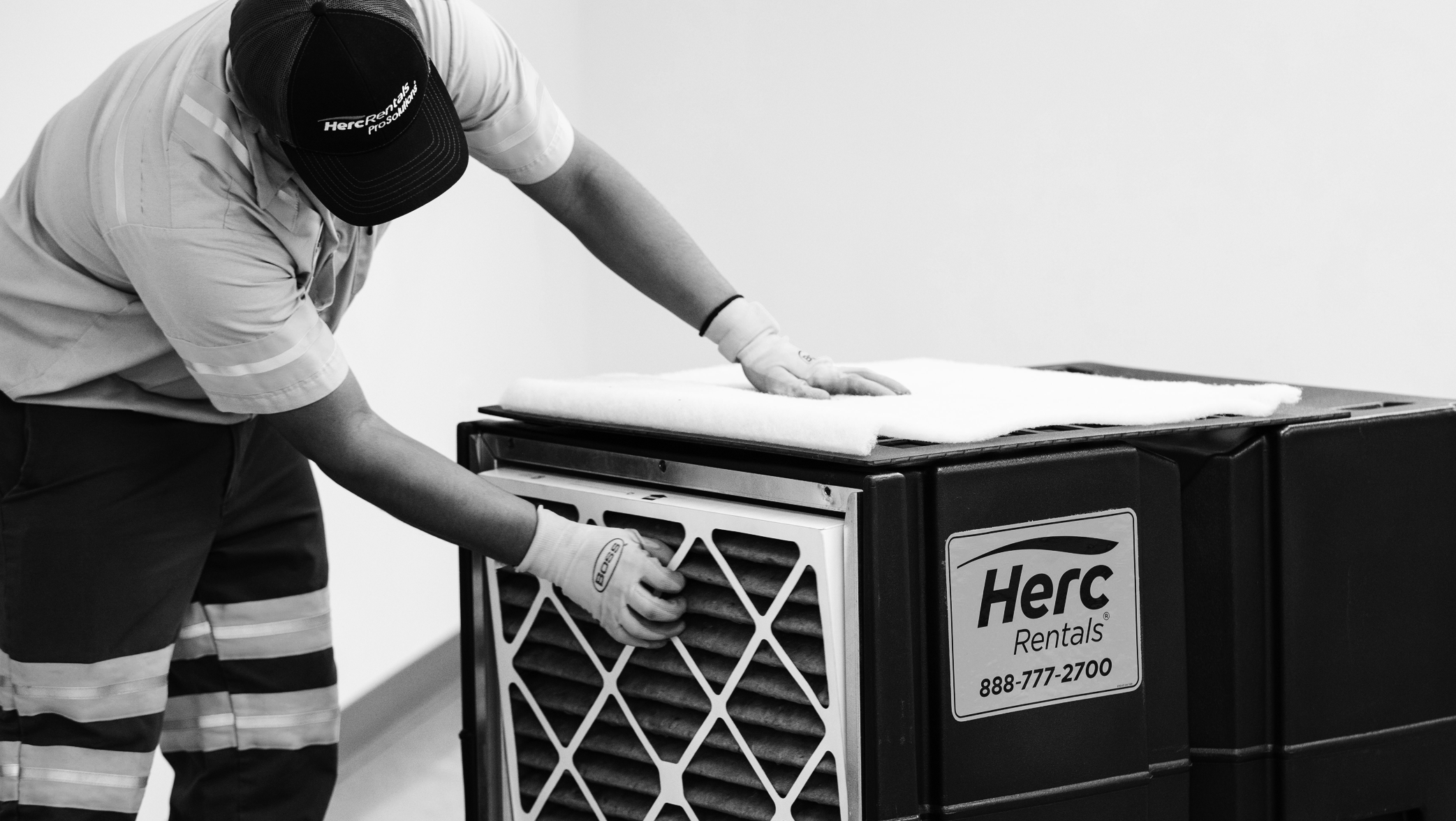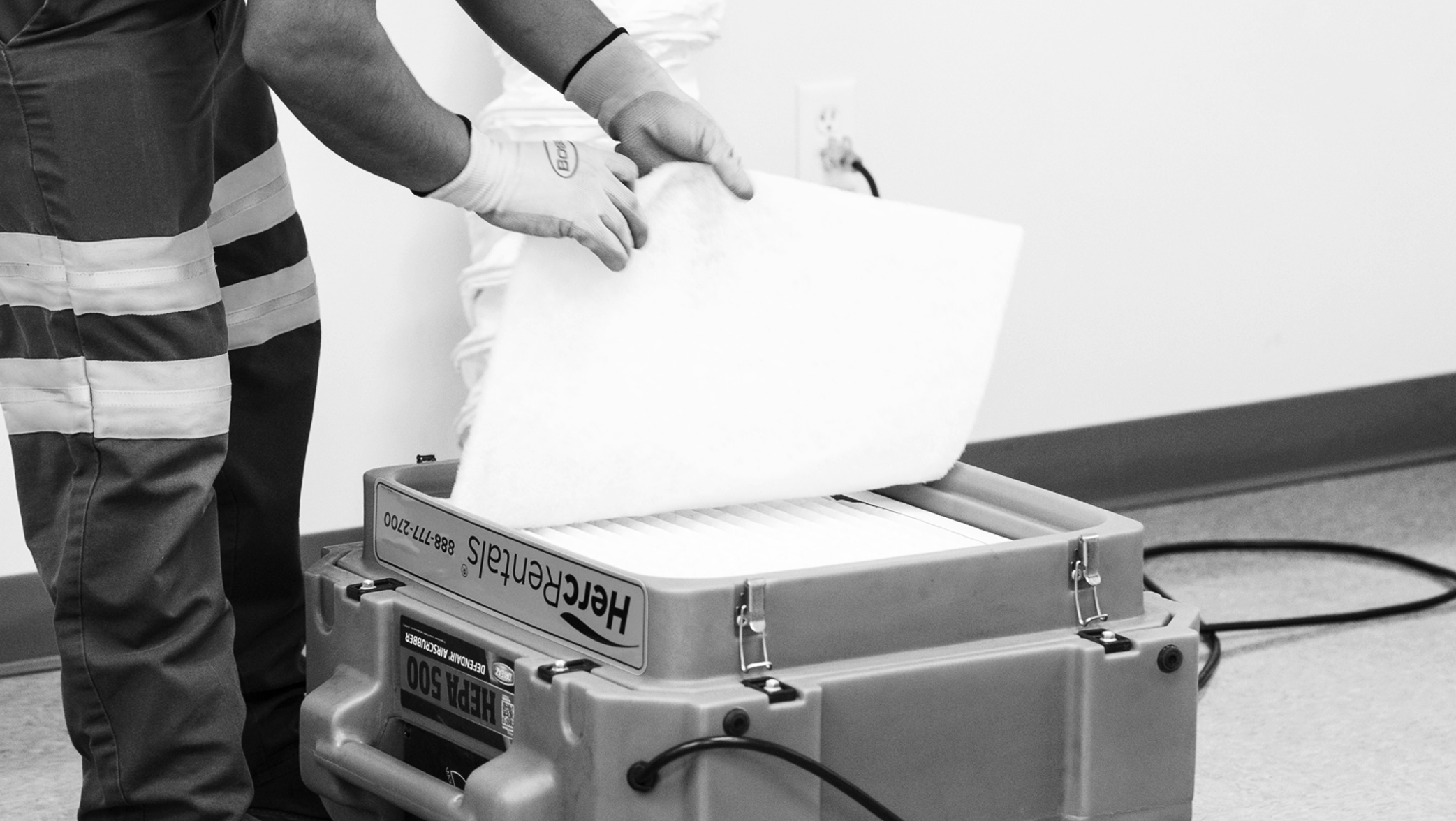Winter’s arrival and the unpredictable weather that comes with it, presents Herc Rentals with a wide variety of challenges ranging from employee safety to the work we perform itself.
What are some of these challenges, how do we prepare for them, and ultimately, how do we overcome them?
Although OSHA does not have a specific standard that covers working in cold environments, Herc believes we should educate our team on the hazards of winter work, how to protect ourselves, the equipment, and our locations.
TRAIN AND GAIN
When you educate your team about the warning signs of cold-related injuries and illnesses, the need to place an emergency call for help lessens. For information on recognizing the symptoms of cold stress and how to prevent it, click HERE.
In addition, leaders should also make sure their team knows how to select the proper outdoor clothing to wear for cold, wet, or windy conditions. That means dressing in layers with an insulating, moisture-wicking base and a waterproof outer layer in addition to winter enhancements made to personal protective equipment like insulated safety gloves, appropriate footwear that meets the minimum Herc Boot Policy, traction aides, fog-resistant safety glasses or cleaning agent, and winter liners for hard hats if needed.
For more on preparing your team and location for the winter, check out OSHA’s winter weather worksheet.
Herc Rentals’ branch managers also must make sure all appropriate team members are trained and licensed to operate equipment during the winter months. OSHA suggests using large empty parking lots to practice driving vehicles or operating equipment on icy surfaces. The agency also maintains all vehicles should be properly maintained and stocked with emergency items like flashlights, jumper cables, blankets and more.
PREPARE A SAFE SPACE
OSHA also recommends employers provide remedies to reduce the risk of cold stress. That could mean providing a temporary warming shelter like a heated tent or storage container and warming equipment like direct fired or electric heaters when entering the branch or shop is not feasible.
Preparing a safe job site also means removing snow and ice from all roads, walkways, steps, roofs – and around construction equipment. In addition to plowing or shoveling snow, locations may also consider using salt or sand to remove stubborn patches of ice.
(Pro tip: If possible, pile plowed snow at the top on an incline, sloped away from your main work areas. This way, when the snow melts, water will run away from your job site and keep it from turning into an ice rink at dusk if paved or if unpaved simply a mud pit).
Another winter work area concern, especially after a heavy snowfall, is losing sight of any ground imperfections. On a normal day, our locations and delivery sites may feature hills, ditches and other ground imperfections. To keep ourselves safe and equipment from potentially being damaged, when possible we should mark these areas off or simply fill them in.
PROTECTING EQUIPMENT AND THE WORK
While storage containers can be used at some locations by workers to get some relief from the cold, they can also be used to protect equipment from snow, ice, and rain. Another useful piece of equipment designed to protect other equipment is ground protection. These sheets assemble quickly, won’t splinter like plywood, and are built to keep vehicles and other equipment from damaging the ground or getting stuck in the mud or deep snow.
Cold and wet weather can also impact the structural integrity of materials like adhesives, wood, steel, concrete and more. To learn about winter’s impact on construction materials, check out this recent Herc Rentals’ blog.
PREPARE FOR ILLNESS AND WORK STOPPAGE
Another concern is keeping deliveries on schedule.
During the winter months, the weather can get nasty and cause a complete shutdown for a day or more. In cases like this, be sure to notify each customer of any possible delay and work to verify each delivery is still needed or reschedule so we don’t deliver to customers who have been shut down.
Another winter eventuality are sick days. Long before reaching winter’s peak, branch managers should stress to their team that if they’re feeling sick, stay home. That’s especially true during the current pandemic, but also to prevent work from grinding to a halt because the entire team is out with the flu.


